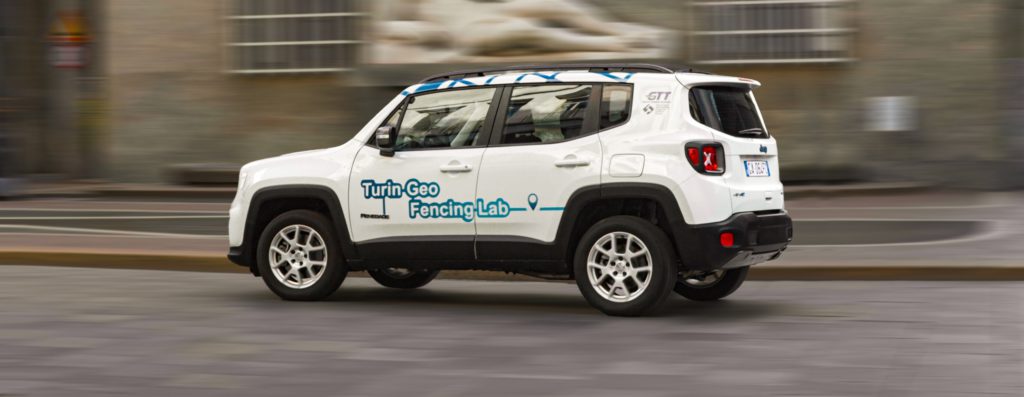FCA’s automatic electric mode tested in Turin
19 June 2020

19 June 2020
Fiat Chrysler Automobiles (FCA) is taking to Turin to pilot a system that allows its plug-in hybrid vehicles (PHEVs) to automatically switch to electric-only mode when entering city centres.
At the start of June, the city’s Department of Transport, Infrastructure and Mobility signed a cooperation agreement with FCA to test the integration of electrified mobility with the restricted traffic zone management infrastructure (Zona a Traffico Limitato – ZTL).
Traffic recognition
Dubbed the ′Turin Geofencing Lab’, this project hopes to maximise the environmental benefits of PHEVs. To do this, it takes advantage of the transformation of cities into smart areas, which connect and talk to transportation. The lab is based on a prototype system with integrated onboard sensors, which allows a car to recognise when it is entering a ZTL.
Once in such an area, sensors automatically turn off the combustion engine and switch to electric-only mode. If the driver decides to change back while in a ZTL, an alert is triggered and a recommendation is made to change to electric. If this is ignored and the car travels through the ZTL in non-electric mode, the city’s digital platform is notified.
So while the driver can maintain a level of autonomy over the automated system, there could be a potential consequence lined up for those who choose to drive through a ZTL in anything but full-electric mode in their PHEV.
But by utilising full-electric mode, plug-in hybrids can enjoy exemptions usually reserved for electric-vehicles in the city centre, including dedicated parking spaces. The technology has initially been tested in the new Jeep Renegade 4xe. Trials could be extended to the FCA’s other PHEVs from next year.
′World exclusive’
While FCA claims this project to be a ′world exclusive’, in March BMW announced it had gained approval to use geofencing technology in 80 European cities to trial its eDrive system. This project also reported to use zones to trigger an automatic switch to the pure-electric mode in BMW’s PHEVs.
In 2019 BMW and Rotterdam also worked together on a project where a smart-phone reminder asked the driver to turn off the combustion engine when passing through a virtual boundary into an ′electric-only zone’. However, this didn’t rely upon such a direct link to the city’s infrastructure as with FCA and Turin.
An ′urban laboratory’
′Turin Geofencing Lab represents a great cooperation with the Municipality of Turin: a partnership between those who must set exacting regulations to safeguard the protection of the environment, and those, like FCA, who must find innovative, affordable solutions for motorists to be able to contribute to improving air quality in our cities,’ said Roberto Di Stefano, head of EMEA e-Mobility at FCA. ′Once this unique pilot project with the City of Turin is complete, the same measures will gradually be offered to municipal governments both in Italy and abroad.’
′By signing this memorandum of understanding, the city of Turin is continuing its commitment to being an urban laboratory to test and develop innovative technologies, the use of which could contribute to protection of the environment and support for the development of sustainable mobility, thus making the city a better place to live,’ added Mayor of Turin, Chiara Appendino.
′Public-private partnerships are not only useful in the piloting of new smart services and technologies that can be applied on a large scale and in the city, they also represent a significant lever for an area like this one, with its unique know-how, world-leading automotive industry and truly excellent research institutions.’